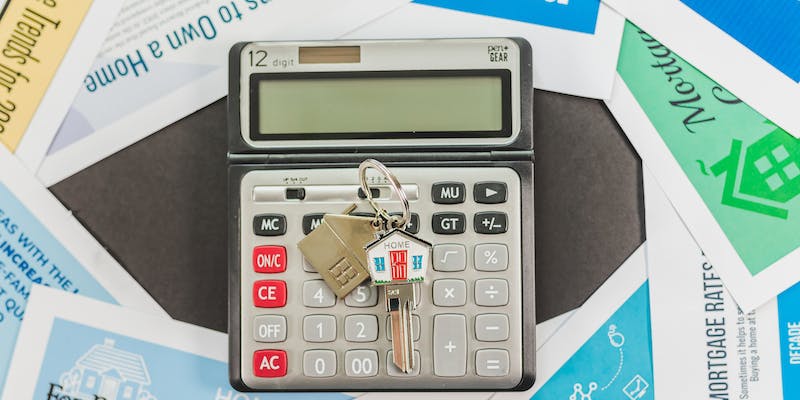What are the Consequences of not Filing Your Taxes?
Oct 07, 2023 By Susan Kelly
We know that the time you must file taxes is crucial. If you meet specific earning criteria, it becomes essential that you start giving taxes. Some people don’t like paying their taxes. If you are also someone who didn’t pay their taxes this April or won’t be paying in October, then let us tell you it might not be your best decision.
If you don’t file taxes or you miss your, then there are penalties that you might have to pay. There are different consequences that you might need to pay. If you are wondering what are the consequences if you don’t file taxes, then this article is just for you. Here, we have mentioned some reasons that will motivate you to start paying your taxes on time.
What Happens When You Don’t File Taxes?

When you are late for the tax, it can cause many problems in your life. People might face two primary types of tax penalties when they are late to paying their taxes.
Following are the two primary tax penalties people face when they owe the IRS.
Failure to Pay Penalty:
The first type of penalty when you are late with your taxes is failing to pay the fine. This type of penalty happens when you don’t pay your taxes on time. This penalty is imposed if you don’t pay your tax return on the approved extended due date. In this type of penalty, a 0.5% extra penalty is imposed on your unpaid taxes for each month. This penalty is $25 of your due taxes. There is also a notification that you might get notifying you with the intent to levy. This means garnishing your wages or taking out money from the bank accounts.
They also notify you when you need to pay your overdue taxes. This means you must pay or file taxes within 10 days of the notice. If you fail to clear your taxes within the 10-day limit, your penalty will increase to 1%.
Failure to File Penalty:
The next type of penalty that is very common is failure to file taxes. If you don’t file taxes on time, you will be penalized. The amount of the penalty is different for everyone. It depends on the amount of taxes that have not been paid or how late you have filed the taxes.
Now, you might be thinking what unpaid taxes are. These are taxes that are shown on the federal income tax return. You can subtract the payments you made throughout the year, like the withholding taxes.
This penalty includes 5% of the unpaid taxes for the due month or partial month tax. The good thing is that the IRS department won’t charge you a penalty greater than 25%. However, the IRS does charge a certain amount of interest on the penalties. This is why make sure to file taxes on the given date is always good to avoid such circumstances.
Substitute Tax Return:
In some cases, the IRD department can file the substitute tax on your behalf if you fail to pay the taxes or file them. In this case, the IRS will work with third-party companies and agencies that will give them information on the accounts. Some of these companies have W-2 forms and 1099 forms. They will help with the tax return even if they won’t be a part of the tax deductions.
You will get about 90 days to submit any due that are left, or they even allow you to file a petition with the US Tax Court. However, if you fail to submit the due within 90 days, the IRS will start deducting and charging you for the remaining taxes.
These are the three common tax penalties a person might have to give if they fail to file taxes on time.
How to Pay Taxes When You Can’t Afford Them?

If you are paying or you file taxes late because you can’t afford them or you are financially unstable, then there are different arrangements that you can make with the IRS, and they can help you with the payments. Following are some of the main payment options that will be given to you
Short-term payment plans:
A short-term payment plan provides you with the flexibility to settle your tax liability over a span of 180 days. This arrangement offers a manageable timeframe for meeting your tax obligations while mitigating the immediate financial burden, providing some relief, and facilitating compliance with tax requirements.
Installments:
Consider the installment option for a prolonged tax payment timeline. This choice offers the convenience of settling your tax liability over an extended period. It's an ideal solution for individuals and businesses looking to manage their finances while fulfilling their tax obligations without undue strain.
Offer in Compromise:
The Offer in Compromise (OIC) program offers a viable avenue to negotiate various agreements with the IRS, potentially leading to a reduction in your tax liability. This option allows taxpayers facing financial hardship to explore feasible solutions for settling their tax debts, creating opportunities for more manageable financial arrangements and potential debt reduction.
Conclusion:
The taxes are one of the most important things that must be clear to save yourself from the penalties. However, there are a lot of people who need help to pay or file taxes. If you cannot pay the taxes, you will have to pay the penalties that can be more damaging. Therefore, checking the tax rates and paying them accordingly is always advised.
-
Banking Oct 15, 2023
Deserve Pro Credit Card Review
Heard about the exceptional benefits and reward cashback the Deserve pro credit card offers and wanted to know more? This article has you covered
-
 Banking Dec 07, 2023
Banking Dec 07, 2023Introduction to Freddie Mac and Its Guideline’s Ins And Outs
Explore Freddie Mac's role in stabilizing the housing market, its evolution, and criticisms. Learn about the SBL program's advantages and disadvantages.
-
 Banking Dec 16, 2023
Banking Dec 16, 2023Top Six Essential Factors You Should Know About the Bilt Credit Cards
Discover the six crucial facts of a Troy-Bilt Credit Card, including how you can earn rewards by paying rent using the Bilt card and much more.
-
 Banking Oct 14, 2023
Banking Oct 14, 2023Best Credit Cards For Lounge Access
Explore the best credit cards for lounge access to elevate your travel experience. Gain insights into the top choices and their exclusive perks.
